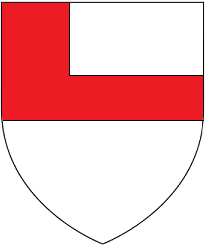The Catholic Church is the progenitor of the modern university system. University comes, after all, from the Latin universitas – as in the Universal Church.
It only makes sense then that the first honorary degree was awarded to a Catholic!
The practice of awarded degrees honoris causa, Latin for the sake of of honor, dates back to Medieval times. Some universities saw fit to grant an exemption to all the usual requirements for getting a degree: no classes, credits, exams, etc. necessary.
Oxford University, the second oldest university in the world, started teaching classes as early as 1096 AD. The papacy played a great role in organizing the schools in Oxford, however, to a proper institution of high learning.
A charter for Oxford University was issued in the form of a papal bull on June 20th in 1214, another papal bull later confirming the “liberties, ancient customs and approved statutes” of the university.
It would be nearly 400 years later until the honorary degree was ever awarded to Lionel Woodville from Oxford University, a Doctorate in Canon Law. In the late 1470s, the university intended to honor and obtain the favor of Woodville, a man with great influence who already had earned a Bachelor’s degree in Canon Law.
Their bet paid off: he then became Chancellor of Oxford, a position originally created in the papal bull.
Woodville also held minor clerical positions until he became Bishop of Salisbury in 1482.

Want to learn more about the Church’s contribution to science? Learn how seismology, the study of earthquakes, became known as the Jesuit science! Or, learn the awesome reason 35 craters on the moon are named after Jesuits!
Editorial credit: Viacheslav Lopatin / Shutterstock.com | Photo credit: Public Domain via Wikimedia Commons














